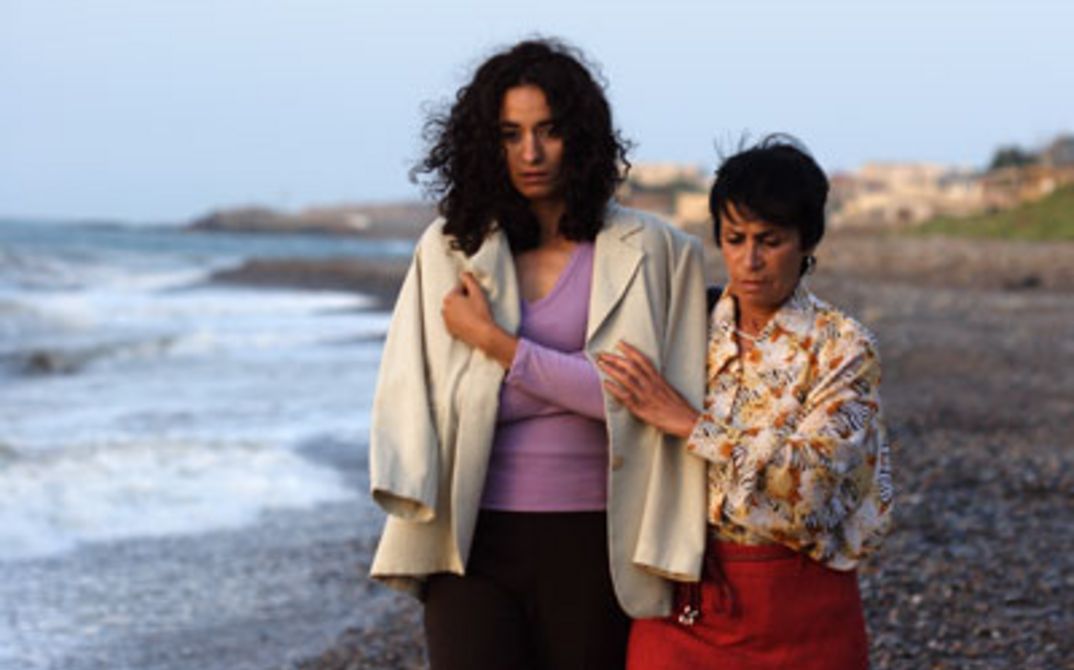A women's story that plays in a country wracked by violence. An Algerian coastal village in the 1990s and two women: the fun-loving Amel, who is in her midthirties and works as an emergency doctor in a hospital, and the sixty-something nurse Khadidja, a woman as energetic as she is humorous. Amel is waiting for her husband Mourad, a journalist. But then she has to take little Bilal to the hospital as an emergency case. Bilal is the son of her neighbor Nadia, who is always hidden in a black veil, and Nadia's husband Karim, a car mechanic. When Amel comes home the next morning, Mourad has disappeared. But Karim has some information on his whereabouts. She and Khadidja go looking for an underground Islamist group. When the two women are taken prisoner by Islamists, their leader Hadj Slimane saves their lives, thus repaying a debt he has owed Khadidja since the war. "In my film, from the beginning, I did not want to show imprisoned, subservient women, as one sees so often in Algerian films, nor unrealistic heroines who deny themselves in the name of history. I wanted to portray women who are in motion – and of course this motion influenced the film's form. These women make their way in life without ever pitying themselves or arousing the audience's pity. They move forward despite all obstacles. They move forward, whatever happens. And they never return to the place they set out from." Djamila Sahraoui
Production: Les Films d'Ici, Paris; Arte France Cinema, Paris; ENTV Algérie, Algier; BL Prod, Algier; Nomadis Images, Tunis
World Sales: Les films d'Ici
Screenplay: Djamila Sahraoui, Cécile Vargaftig
Cinematographer: Katell Dijan
Editor: Catherine Gouze
Cast: Rachida Brakni, Fettouma Bouamari, Zahir Bouzrar, Malika Belbey, Amine Kedam
Format/screen ratio: 35mm (shot on DVCpro), 1:1.85, Color
Running time: 95 minutes, 24 frames/sec.
Languages: Arabic, French
